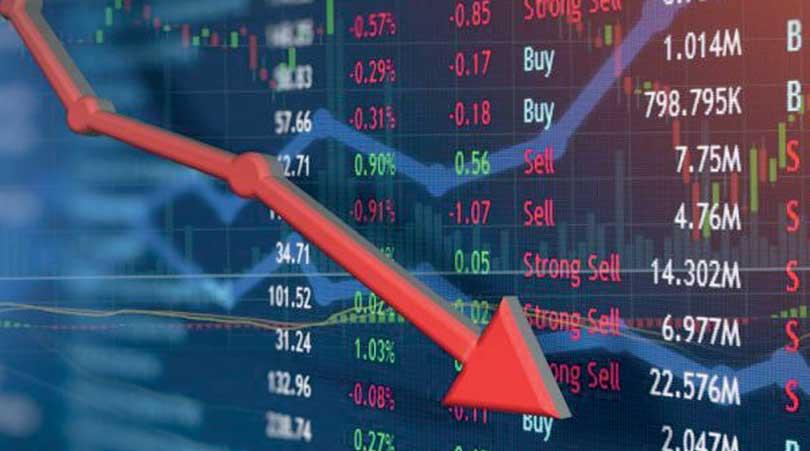Reply To:
Name - Reply Comment
Last Updated : 2024-04-24 15:12:00

 Societies across the world are facing tremendous challenges. And on March 31, 2020, United Nations Secretary-General Antonio Guterres described the situation as follows:
Societies across the world are facing tremendous challenges. And on March 31, 2020, United Nations Secretary-General Antonio Guterres described the situation as follows:
“We are facing a global health crisis unlike any in the 75-year history of the United Nations — one that is killing people, spreading human suffering, and upending people’s lives… But this is much more than a health crisis. It is a human crisis. The coronavirus disease (COVID-19) is attacking societies at their core… a disease that represents a threat to everybody in the world and... an economic impact that will bring a recession that probably has no parallel in the recent past… The combination of the two facts and the risk that it contributes to enhanced instability, enhanced unrest, and enhanced conflict are things that make us believe that this is the most challenging crisis we have faced since the Second World War.”
This deeply worrying warning is even more applicable to countries like Sri Lanka, whose economies are now on the brink of collapse. How should we address the most serious economic challenge we have faced since Independence?
Supply and Demand Shocks
 The unique and devastating character of the current global economic crisis is that it is creating both supply and demand shocks. Due to the restricted movement of people and hence goods, including the closure of airports and ports and the constraints on land transport, have greatly reduced supplies. Furthermore, with lockdowns and curfews, the demand for goods and services have also reduced. Even where there is demand for essential items, primary producers are hoarding due to insecurity and speculation of increased prices in the future. Therefore, supplies are disrupted even when there is no scarcity, and this is what we might see for example in the international wheat market.
The unique and devastating character of the current global economic crisis is that it is creating both supply and demand shocks. Due to the restricted movement of people and hence goods, including the closure of airports and ports and the constraints on land transport, have greatly reduced supplies. Furthermore, with lockdowns and curfews, the demand for goods and services have also reduced. Even where there is demand for essential items, primary producers are hoarding due to insecurity and speculation of increased prices in the future. Therefore, supplies are disrupted even when there is no scarcity, and this is what we might see for example in the international wheat market.
Next, industrial production within global value chains, with inputs and the supply of parts coming from different countries for assembly plants are severely disrupted. Furthermore, as massive layoffs reduce workers income, their purchasing power is bound to greatly reduce the demand for goods. This vicious cycle of the twin shocks in supply and demand are bringing the global economy to a grinding halt.
With stock markets crashing and banks burdened with non-performing loans, the financial system that extracted massive profits of the financial elite has now been battered and its capacity to support the resumption of economic activities have been greatly curtailed. In any event, businesses that have taken a major financial hit are not going to produce or invest until economies revive and they are ensured profits. Furthermore, with neoliberal policies over the decades, governments around the world have greatly reduced their role in production, and even in essential services such as healthcare and transport.
Therefore, there is a need for a tremendous change in the economic approach of governments. One akin to the time of the Great Depression in the 1930s, where they actively invested in productive infrastructure and industrial production, and mobilised society for the Second World War. Otherwise, it is going to be virtually impossible to get out of the downward spiralling contraction of the global economy.
Crisis in Sri Lanka
In this context, the Sri Lankan Government’s role in reviving the economy is limited by two major factors. First, Sri Lanka is facing serious foreign debt and foreign earning problems; where paying for imports, including equipment and machinery necessary for restarting the economy and for that matter a range of other imports including basic items, may become difficult. Second, Government revenues are abysmally low and expanding credit and printing money brings risks of hyper-inflation. Therefore, a State-led initiative to restart the economy, in a time when business confidence has been shattered, is a major challenge.
Sri Lanka’s foreign earnings from tourism, the garment sector and migrant remittances have all been hit. Hopefully, Sri Lanka can negotiate the export of tea in return for other essential imports such as wheat with strategic bilateral trade agreements. However, with large amounts of sovereign bond repayments of US$4.8 billion due this year, where Sri Lanka’s foreign reserves are only US$7.5 billion equivalent to 4.5 months of imports, puts considerable constraints on the Government’s role in the economy.
The crux of the issue is that with little chance of foreign investment to revive the economy, in a time when keeping the external sector open for the most essential items and guarding the country from default on foreign loans and bankruptcy is a priority, investment will only be possible if there is tremendous restructuring of the economy and redistribution of resources. That is in essence a return to the import substitution policies before the opening of the economy in the 1970s and a massive wealth tax to fund the necessary state investment.
Will our political elite and policymakers be willing to make such a radical paradigm shift in approaching economic policies? Without demands and pressure from the working people, who are now in great distress due to decades of flawed economic policies, such a progressive economic shift needed to address the current crisis is unlikely.
Strengths and Weaknesses
Addressing the current predicament requires understanding how Sri Lanka has been put in such a vulnerable position. And we are going to have to ask some hard questions.
What were our successive governments thinking when they allowed for the import of luxury vehicles for the wealthy and channelled so much investment into luxury real estate such as hotels and malls? What are the returns on investment for the massive and exorbitant infrastructure projects including the high speed expressways?
For all the talk of Sri Lanka’s sovereignty, why did the last three governments float so many billions of dollars in sovereign bonds? While there may be a slim chance of renegotiating the terms of bilateral loans from other countries and multi-lateral loans from international agencies, sovereign bonds floated in the global capital markets are like a straitjacket and ends in disasters like Greece, which we were all so clearly aware of.
Why did we not try to produce our most basic needs? Over the past many years, our import bill has ballooned with basic goods each costing in the region of hundreds of millions of US dollars every year; paper and paperboard (US$500 million), milk and milk products (US$300 million) and even for an island nation seafood (US$200 million), and such imports are a long list. (Finance Ministry Annual Report 2018)
It is not that these concerns were not raised by local progressive intellectuals. Shame on our liberal economic establishment, which with its arrogance and collusion with financial interests have pushed our country into this economic abyss. The nationalists and chauvinists claiming to be the guardians of sovereignty – despite their deep silence during the spate of sovereign-bond floats – will now come up with their nativist and xenophobic solutions, which equally belong in the dustbin of history. The tremendous crisis we are facing now is at the core a question about class -- women and men and people from different ethnic and religious communities are all in it together. It is time we demanded a just economy, and that should begin with redistributing wealth.

Add comment
Comments will be edited (grammar, spelling and slang) and authorized at the discretion of Daily Mirror online. The website also has the right not to publish selected comments.
Reply To:
Name - Reply Comment
US authorities are currently reviewing the manifest of every cargo aboard MV
On March 26, a couple arriving from Thailand was arrested with 88 live animal
According to villagers from Naula-Moragolla out of 105 families 80 can afford
Is the situation in Sri Lanka so grim that locals harbour hope that they coul